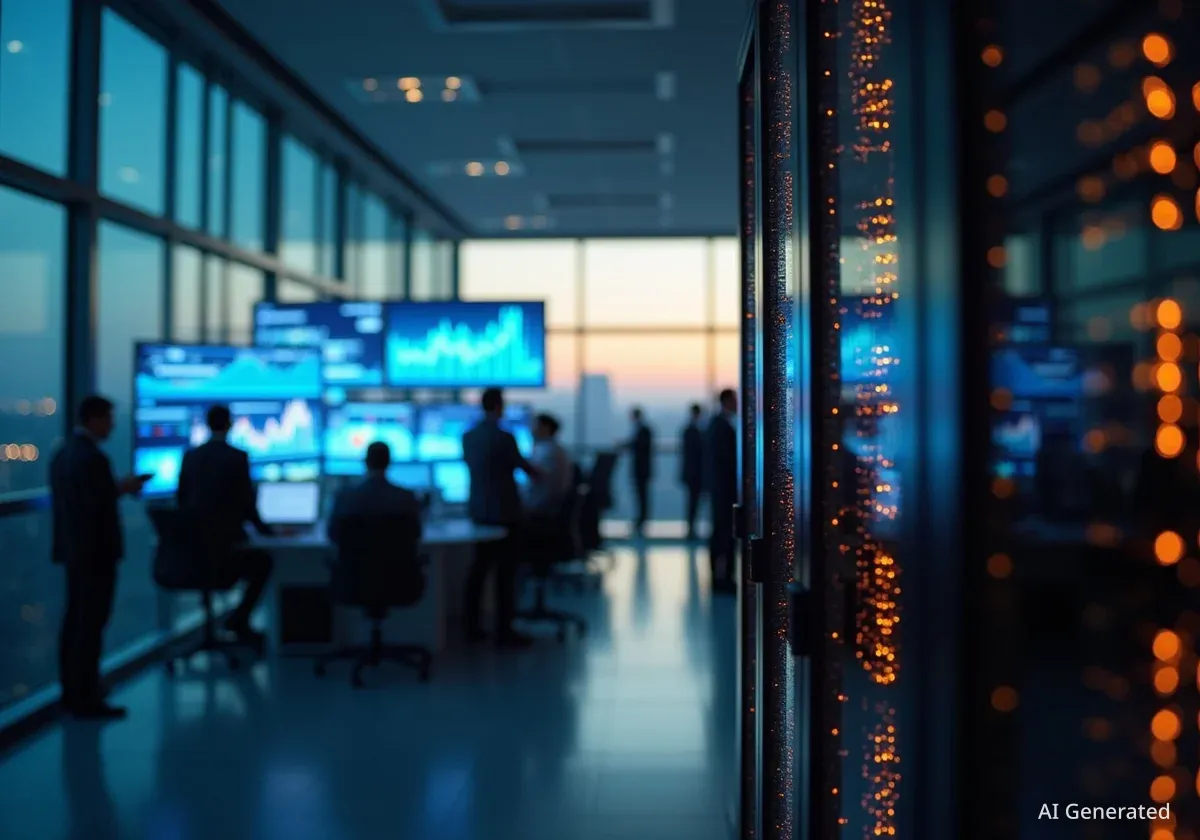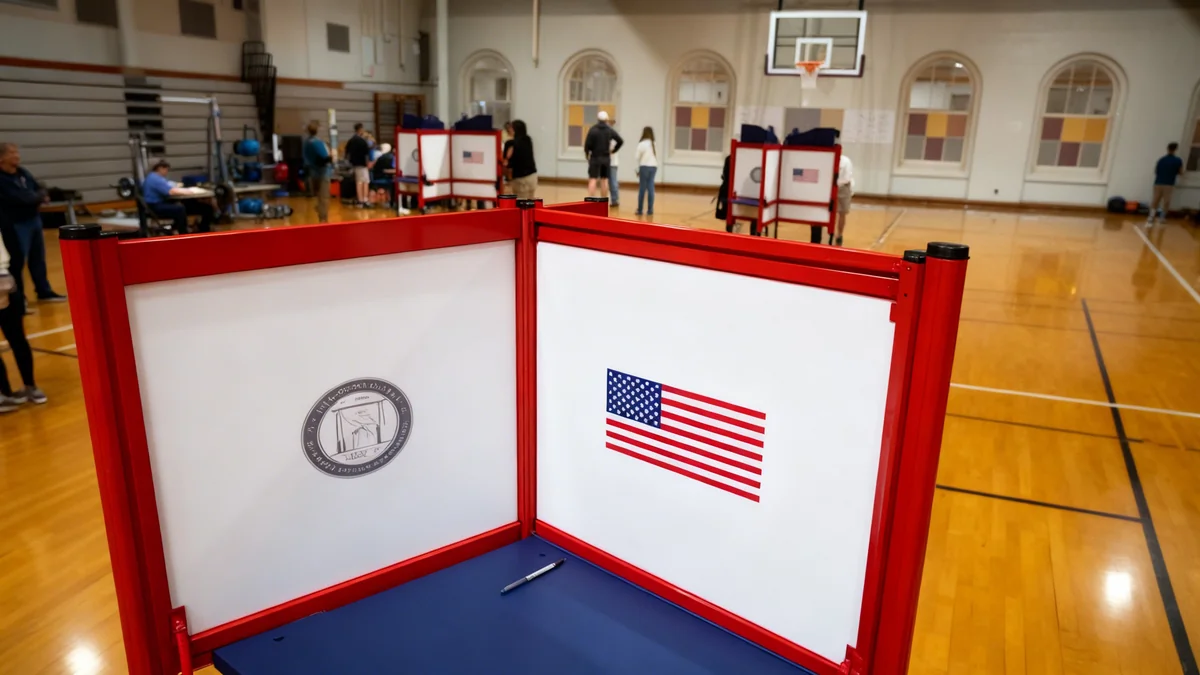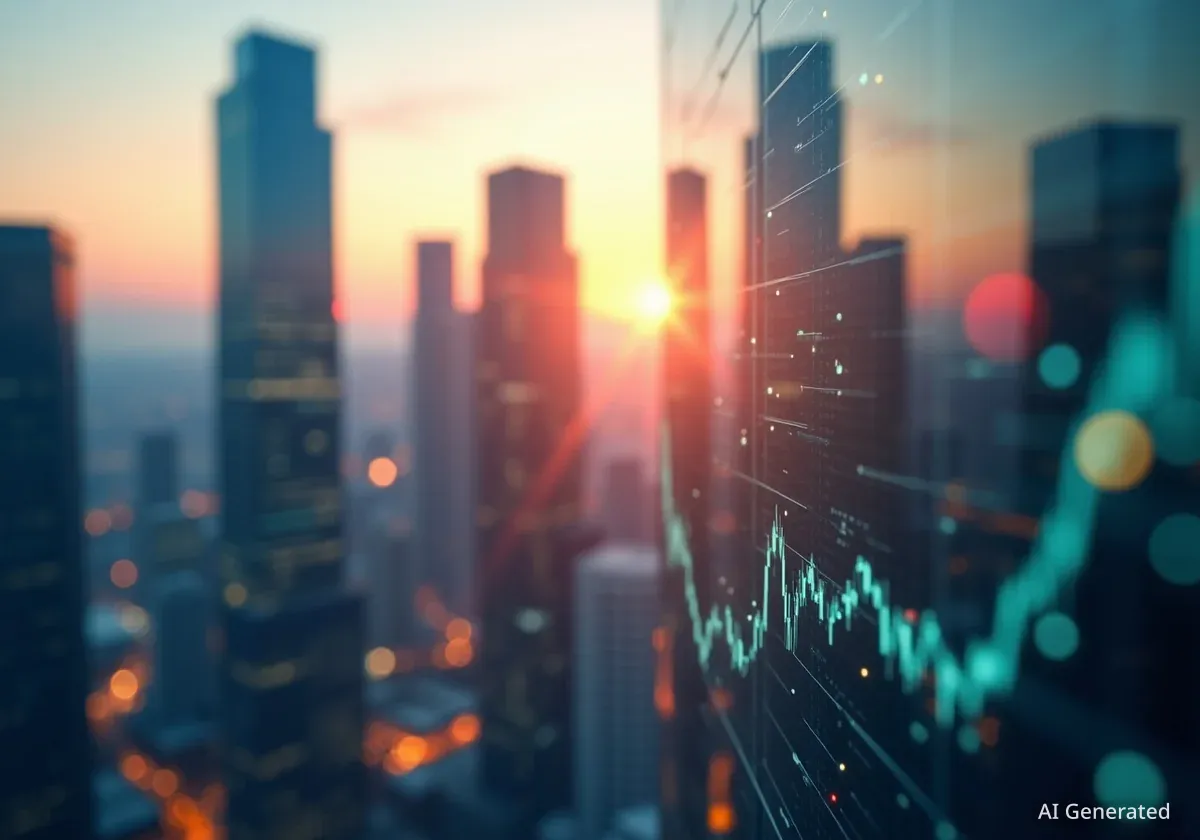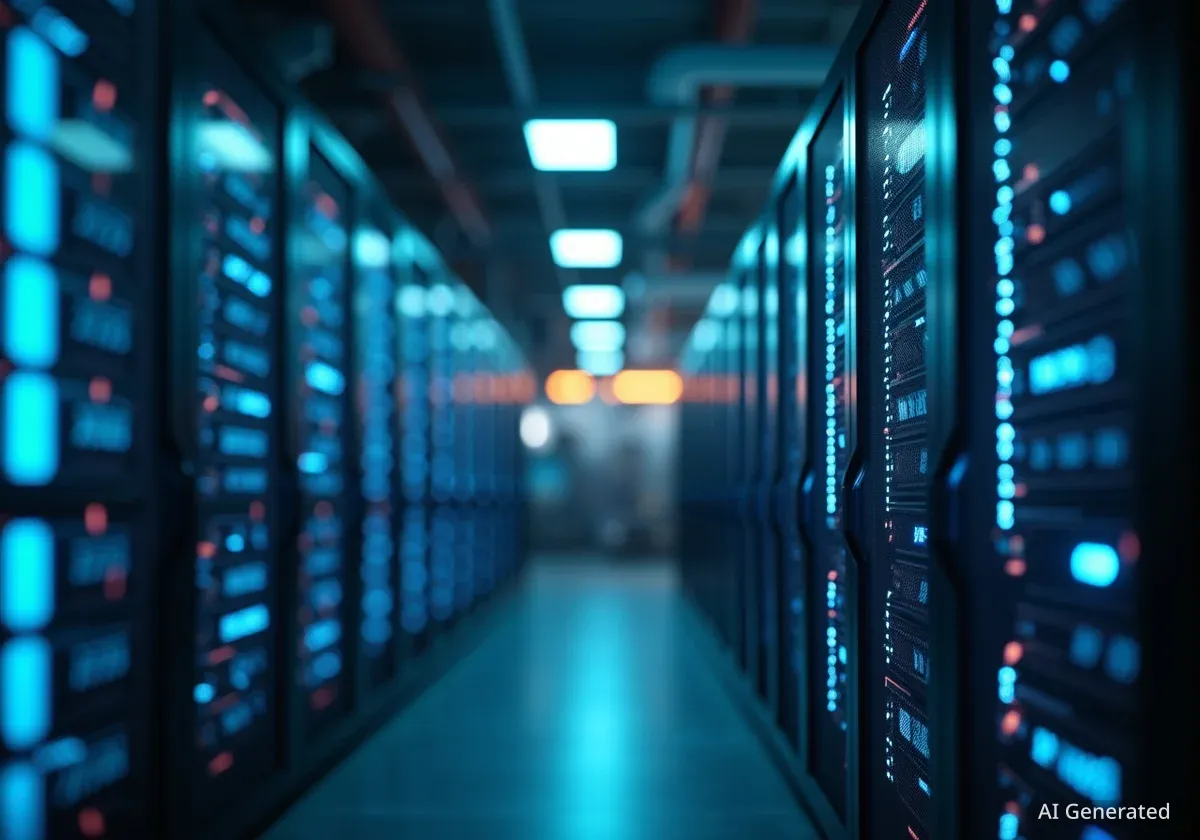In a significant shift for the American economy, corporate investment in artificial intelligence has emerged as a primary driver of growth, rivaling the long-standing dominance of consumer spending. During the first half of this year, a surge in AI-related expenditures accounted for a substantial portion of the nation's economic expansion, raising questions about both the sustainability of this trend and the potential for a speculative bubble.
Data from the Bureau of Economic Analysis indicates that without this massive AI investment, U.S. economic growth would have been significantly weaker. This reliance on a single, rapidly expanding sector has prompted concern among economists and industry leaders about the potential for widespread financial disruption if the current pace of investment slows.
Key Takeaways
- Corporate AI spending was a primary driver of U.S. economic growth in the first half of the year, a role traditionally held by consumer spending.
- Without AI-related investment, the economy would have grown at approximately one-third of its reported 1.6% rate.
- Major tech companies are projected to spend nearly $400 billion on AI infrastructure, primarily data centers, this year alone.
- Economists and tech executives have expressed growing concerns about a potential AI investment bubble, drawing parallels to the dot-com crash.
- A slowdown in AI spending could significantly impact the stock market, employment, and industries like construction and energy.
An Unprecedented Economic Influence
For decades, consumer spending has been the bedrock of the U.S. economy, consistently accounting for the largest share of growth. However, recent data reveals a striking change. While consumer spending makes up about 70% of the economy, a much smaller category representing AI investment has had an outsized impact.
According to the Bureau of Economic Analysis, the U.S. economy expanded at a 1.6% rate in the first half of the year. A significant portion of this growth was attributed to corporate spending on computers and software, which serves as a proxy for AI investment. This category constitutes only about 6% of the overall economy, highlighting its disproportionate influence.
"It’s unusual if you look at the history of these two line items," said Callie Cox, a market strategist with Ritholtz Wealth Management. "What drives the economy quarter by quarter is almost always consumer spending."
By the Numbers
The "magnificent seven" tech stocks—Alphabet, Amazon, Apple, Meta, Microsoft, Nvidia, and Tesla—now represent approximately one-third of the total value of the S&P 500 index. Their heavy investment in AI directly influences the performance of the broader market and retirement accounts like 401(k)s.
The Scale of the AI Investment Boom
The economic shift is fueled by an enormous capital outlay from the world's largest technology companies. Firms like Google, Meta, Microsoft, and Amazon are on a trajectory to spend a combined total of nearly $400 billion in a single year on building and equipping data centers with powerful computer chips needed for AI software.
This spending spree has created ripple effects far beyond Silicon Valley. The Federal Reserve's latest "beige book," which gathers anecdotal information on economic conditions, noted that the demand for AI data centers is boosting regional economies. In the Atlanta area, it has increased demand for electricity and trucking, while in Philadelphia, it is creating new projects for commercial real estate developers.
"We’re seeing a massive AI investment boom that is driving a number of statistics to explode," stated Gregory Daco, chief economist at EY-Parthenon. He warned that any downturn in tech stocks could undermine business and consumer confidence, leading to reduced spending and a wider economic slowdown.
Growing Concerns of a Financial Bubble
While AI tools like ChatGPT have gained immense popularity, many of the ventures receiving billions in funding are not yet profitable. This gap between investment and returns has fueled speculation that the industry is in a bubble reminiscent of previous technological booms.
Even prominent figures within the tech industry have acknowledged the risk. Meta CEO Mark Zuckerberg compared the current situation to the infrastructure build-outs for railroads in the 19th century and internet fiber in the 1990s. Both proved transformative in the long run but were preceded by speculative bubbles that caused many companies to fail.
"There’s definitely a possibility … based on past large infrastructure build-outs and how they led to bubbles, that something like that could happen here," Zuckerberg said on a recent podcast.
Historical Parallels: The Dot-Com Crash
Andrew Odlyzko, an economic historian at the University of Minnesota who studied the telecom bubble of the late 1990s, sees worrying similarities. He notes that the massive investment in fiber-optic cables led to a market collapse in 2001 when expected profits failed to materialize quickly. "AI is a craze," Odlyzko said, expressing skepticism about whether the technology can advance fast enough to justify the immense investments.
Potential for Widespread Economic Damage
The deep integration of AI-centric tech companies into the financial system means a potential downturn would not be contained to the tech sector. Analysts at Goldman Sachs cautioned that an "inevitable slowdown" in data center construction will affect suppliers of chips and electricity.
In a more severe scenario, if Big Tech were to reduce its capital expenditures to 2022 levels, it could wipe out 30% of the revenue growth that Wall Street currently expects for the entire S&P 500 next year. This illustrates the market's heavy reliance on continued AI spending.
The sustainability of startup funding is another major concern. Venture capitalists have poured billions into AI startups, driving up valuations. Jenny Xiao, a partner at Leonis Capital, compared the current strategy to the early days of ride-sharing companies.
"You definitely have to get subsidies from your [investors], and we’re seeing a dynamic very similar to the early days of Uber and Lyft," Xiao explained, noting the "land grab logic" of spending heavily to capture market share before focusing on profitability.
Despite the warnings, many in the industry remain optimistic. Andrew Feldman, CEO of AI chip company Cerebras, believes the excitement is justified. "We’re just in the experimentation phase; we’re not even in mass deployment yet," he said. "I think there’s certainly a case for which AI is under-hyped."





